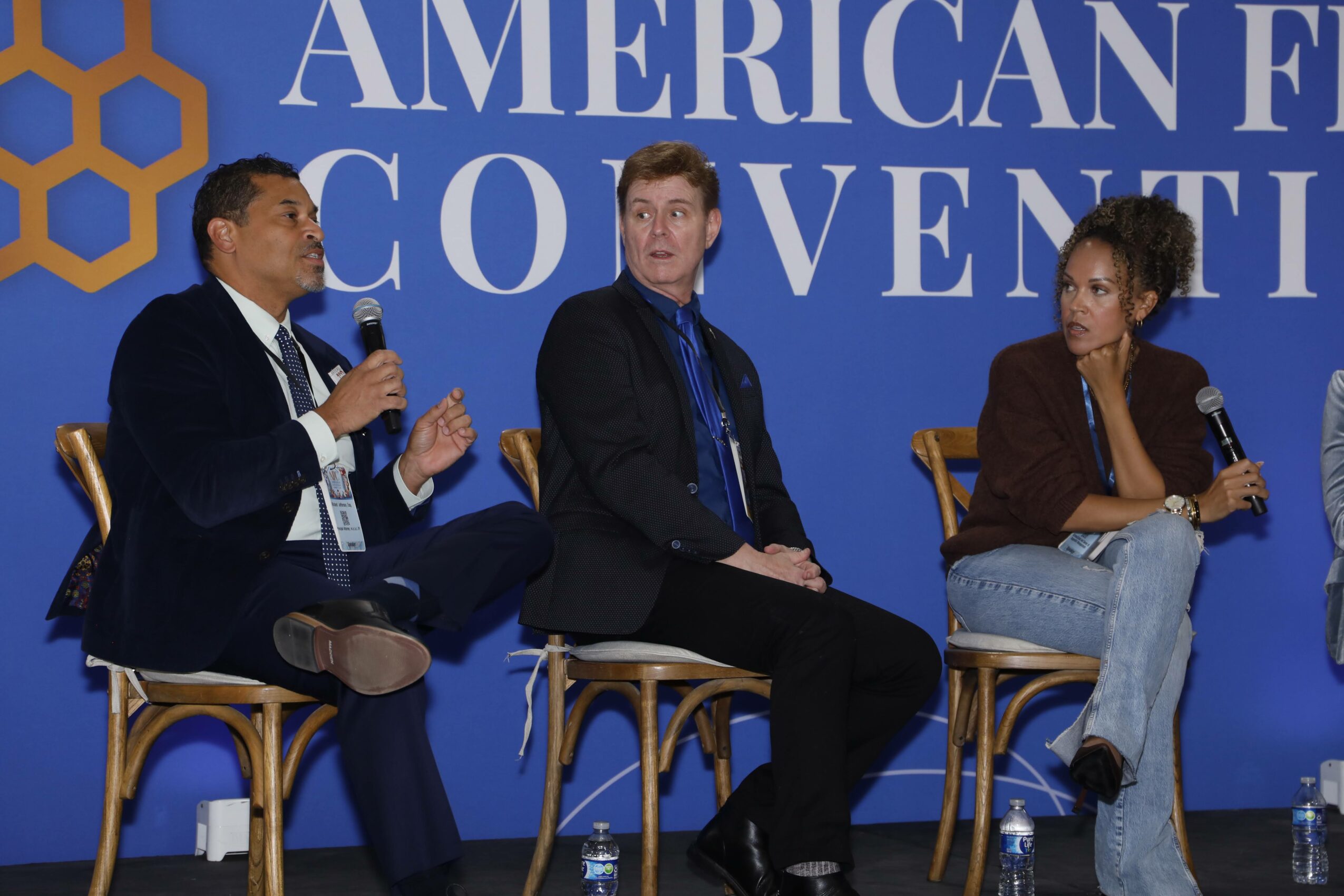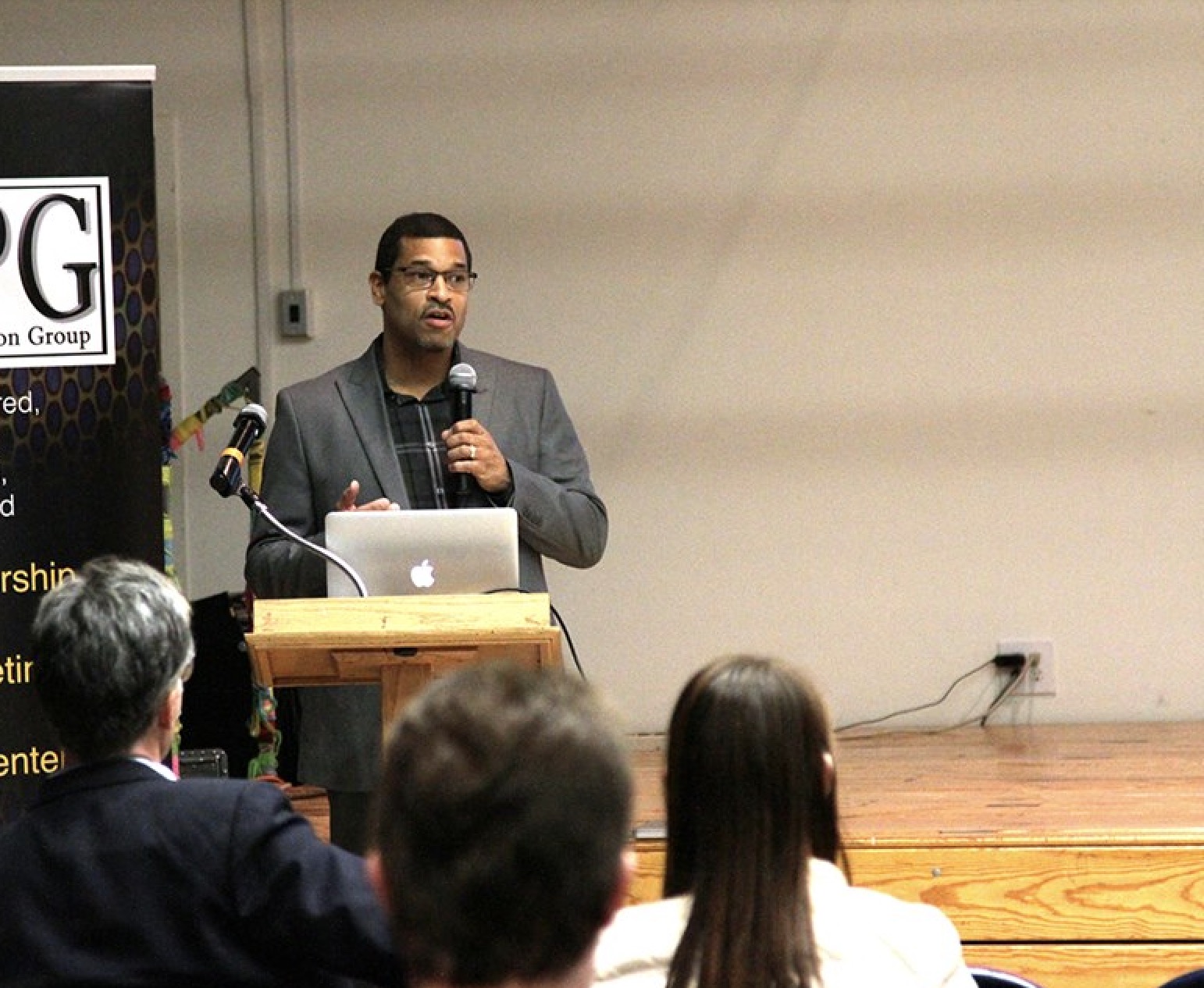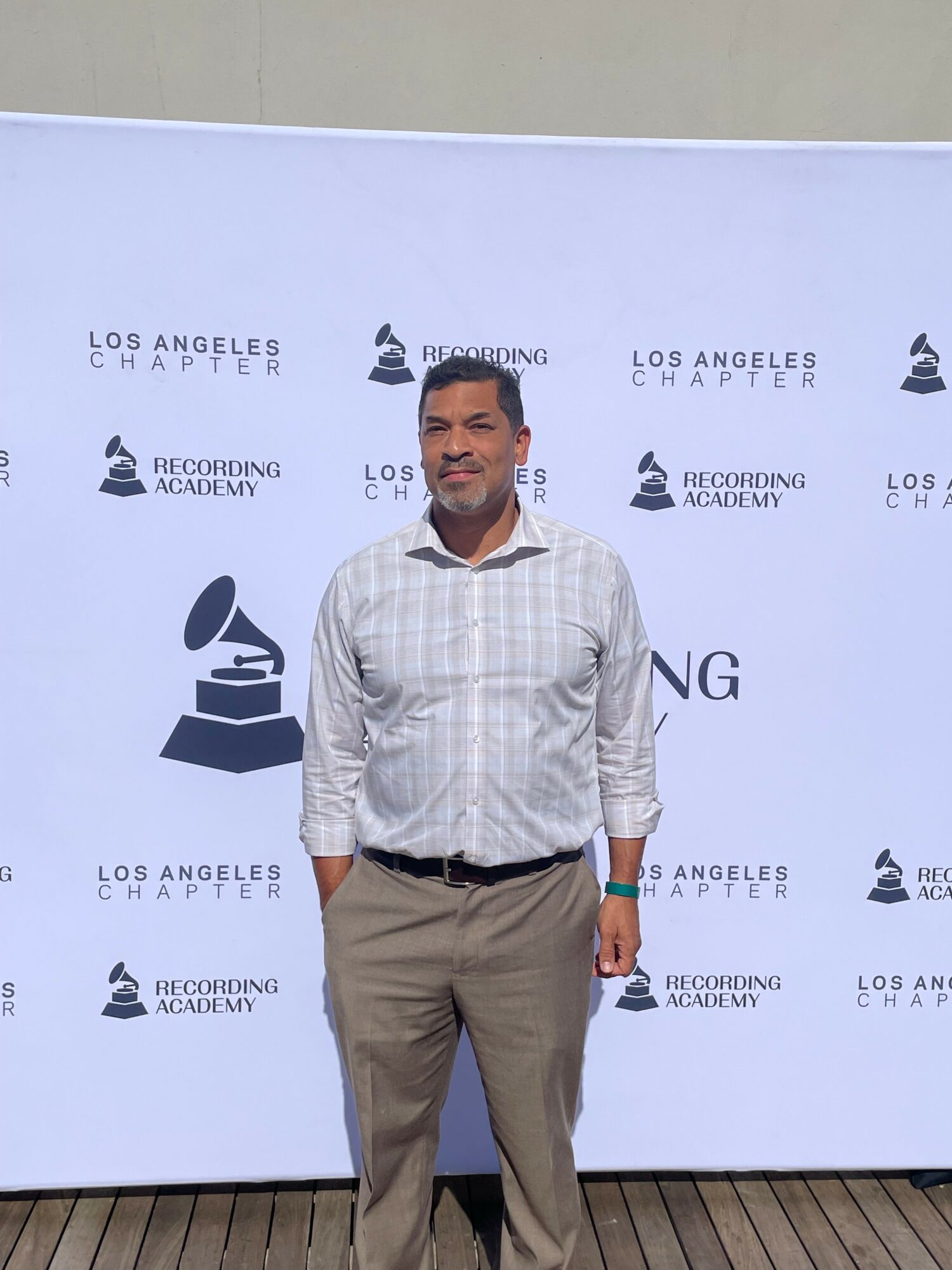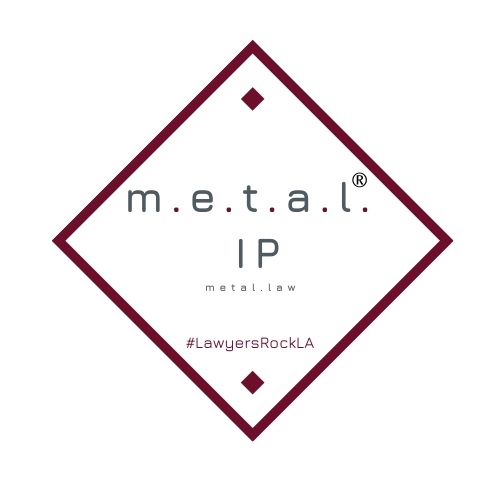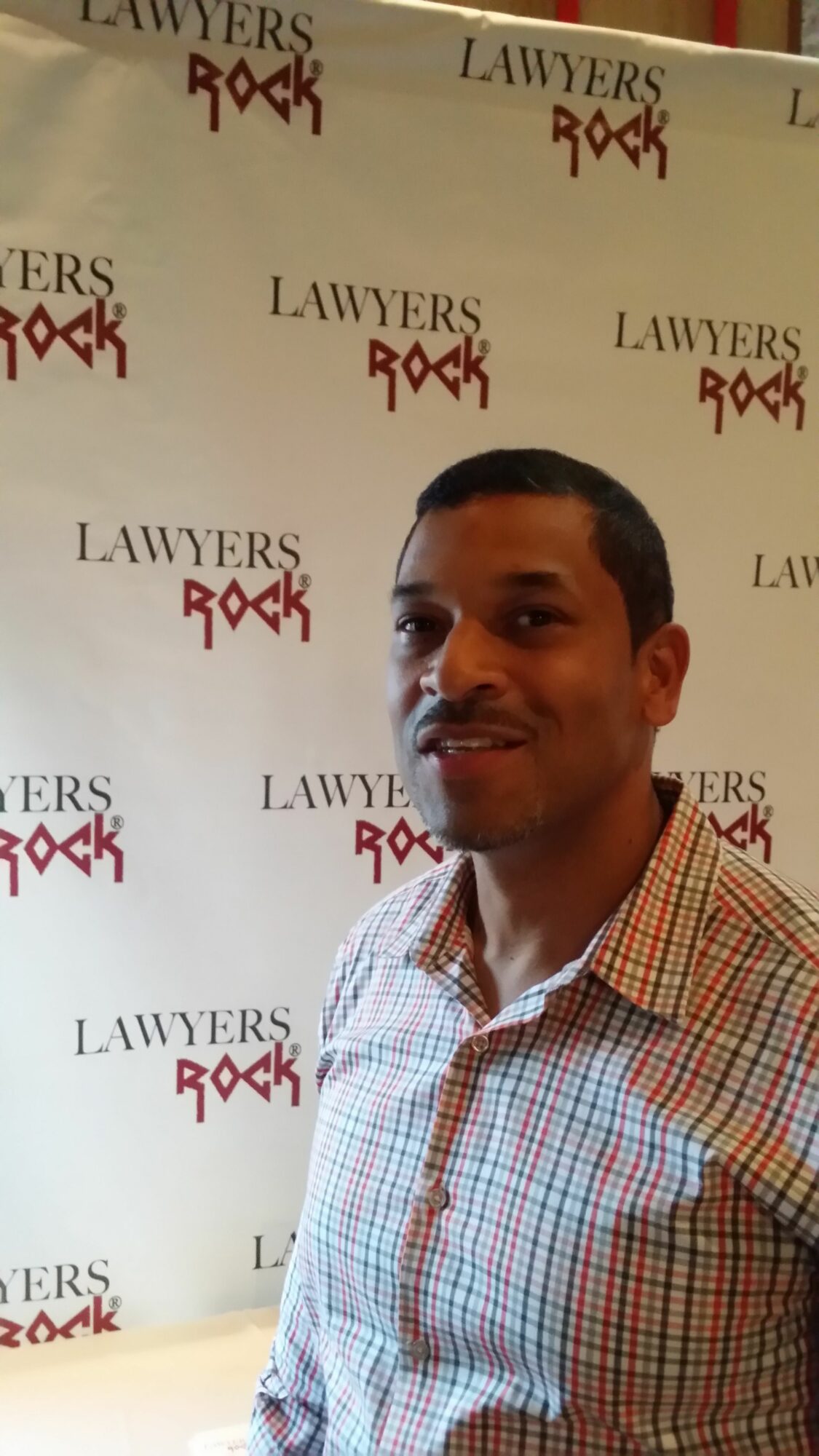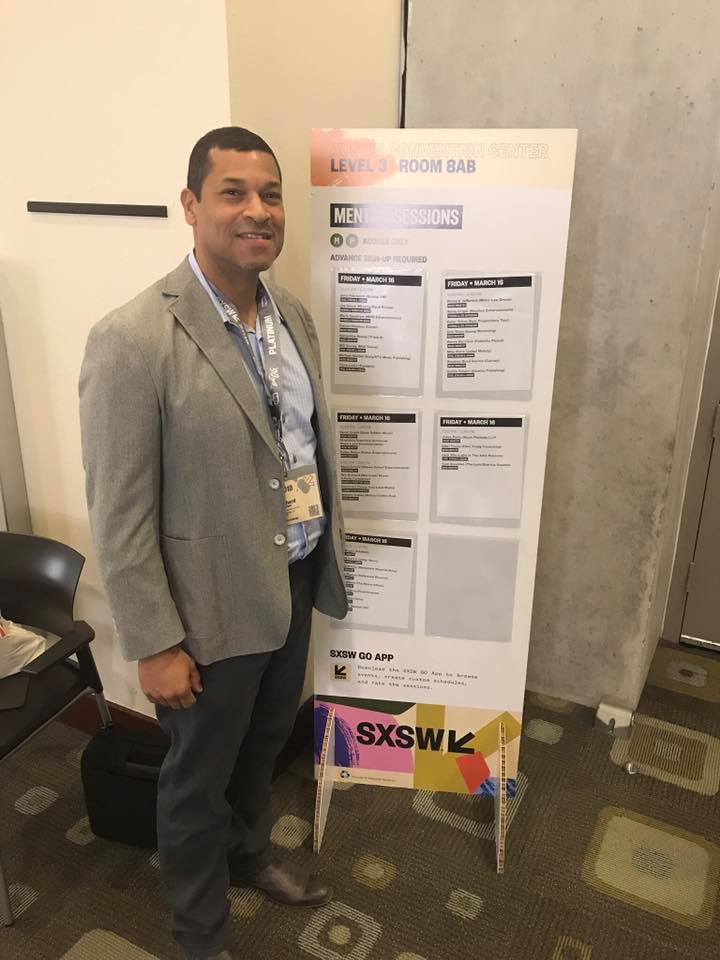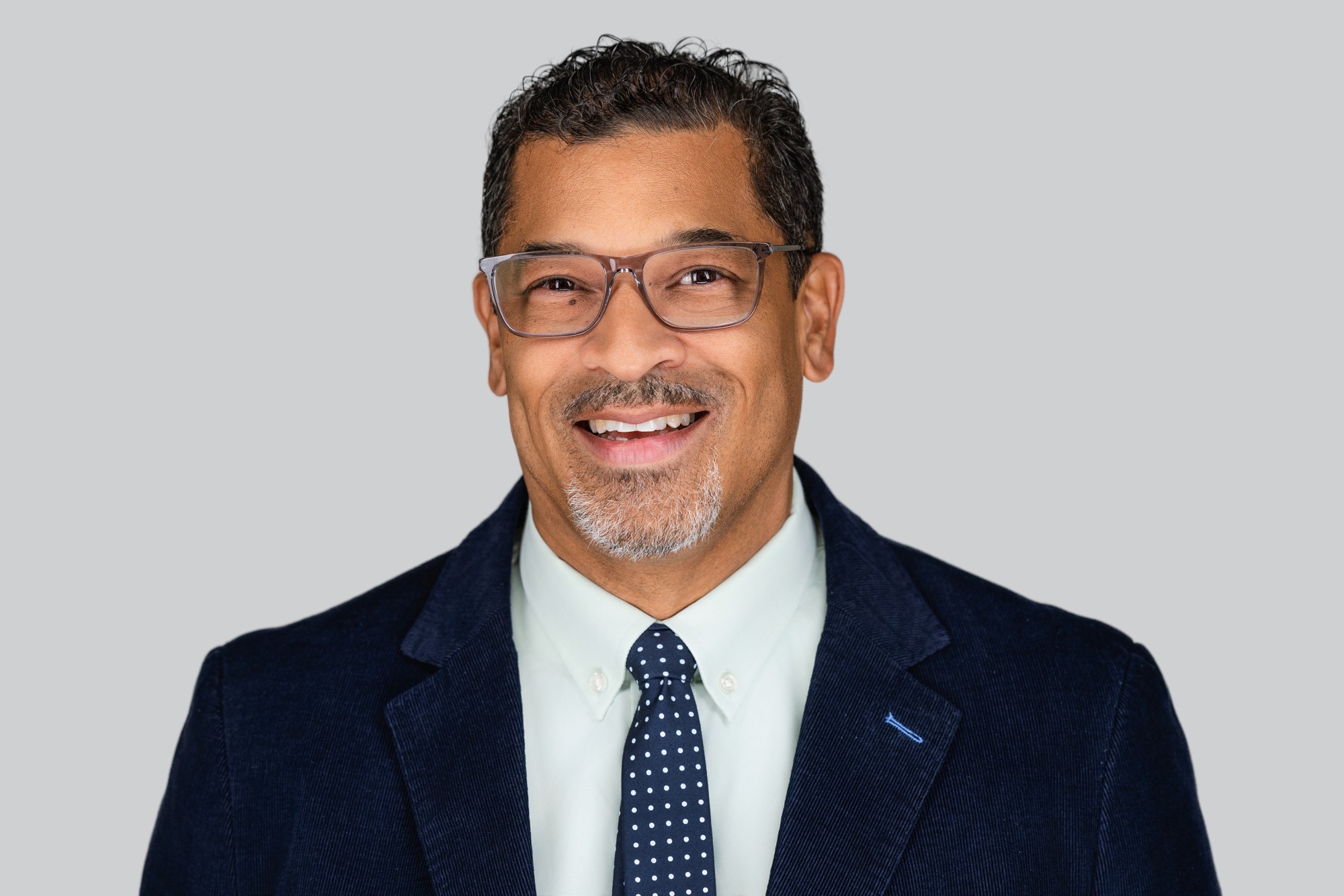

Today we’d like to introduce you to Richard B Jefferson
Hi Richard B, it’s an honor to have you on the platform. Thanks for taking the time to share your story with us – to start maybe you can share some of your backstory with our readers?
I grew up in Ohio and graduated from The Ohio State University (#GoBucks) with an engineering degree. After working as an engineer in several cities, I considered Law School. I made this decision while helping a friend who managed music artists in my free time. The artists were superstars but were not receiving royalties due to a bad recording contract with their label. After seeing this, I wanted to make a difference and help people like these artists. I chose Southwestern Law School (#GoBison) because it offered a unique program that allowed me to accelerate my career change. Additionally, the school is in Los Angeles, the epicenter of the entertainment industry, making it the ideal place to build my professional network in my free time.
After graduation, I began my legal career working in-house for Virgin Records America, Inc. in Beverly Hills. I worked with several artists and independent labels with distribution deals, which provided a great introduction to the business and legal affairs of the music industry. Virgin was an international record label that exposed me to novel legal issues and taught me about the customs of the music business.
After Virgin, I worked as a contract lawyer for various law firms, gaining valuable experience in traditional areas of law such as corporate transactions, mergers and acquisitions, and intellectual property. I also worked for a boutique law firm that represented several high-profile entertainment companies and talent.
I honed my skills as a lawyer through those early experiences. The numerous complex deals I was involved in gave me a solid foundation in law and customary deal points, and I established a strong reputation in the legal community that proved valuable as social media began to evolve.
In 2003, I co-founded a law firm with a law school classmate who was also looking to fast-track his career. We built a firm from the ground up that lasted nearly 20 years.
I’m sure it wasn’t obstacle-free, but would you say the journey has been fairly smooth so far?
My legal career has progressed like a stock market ticker, steadily zig-zagging up and down, with a few disruptive events that sometimes made me question my career change.
When I secured a permanent position with Virgin Records after law school, I believed I was on the perfect career path aligned with my vision when I first came to LA. I was at one of the hottest labels in the music industry, working under three seasoned and highly regarded senior attorneys. The label’s artist roster was unmatched, featuring superstars, rising talent, and developing artists like Janet Jackson, Lenny Kravitz, Tina Turner, David Bowie, Paula Abdul, N.E.R.D. (Pharrell Williams and Chad Hugo), The Smashing Pumpkins, Korn, Daft Punk, D’Angelo, Maxi Priest, Beenie Man, Shaggy, and Yanni. They also had label deals with Blackground Records (Allayah, Timberland, Missy Elliot), Rap-A Lot (Scarface, Ghetto Boys), and Noo Trybe (Guru, Gang Starr, Luniz). Virgin was also at the forefront of releasing soundtracks and compilation albums, including the wildly popular “Now That’s What I Call Music!” series.
My work involved drafting recording agreements, production agreements, side artist agreements, featured artist agreements, sampling licenses, demo deals, development deals, label distribution deals, collaborations, merchandise licensing, soundtrack and compilation albums, performance agreements, cybercast simulcast agreements, tour agreements, service agreements (publicity, marketing, advertising), remixer agreements, video production agreements, and any other needed agreements, for both domestic and international artists and labels.
About two years after I started, a significant shift in the music industry changed everything. In the early 2000s, Napster, a file-sharing application, rapidly gained popularity and devastated the status quo for record companies. Previously, a person could not listen to music without purchasing it in some form. Now, anyone could access Napster, search for a song, and download it for free. Predictably, Virgin’s bottom line took a hit, which eventually led to layoffs. After witnessing a traumatizing company-wide mass layoff, I realized that staying at Virgin while the music business was in flux wouldn’t help my growth, so I decided to leave before I was laid off.
After a few months of piecing together an income through contract work for various firms, I stumbled onto a small ad in the Hollywood Reporter for a Junior Entertainment Attorney. The job description was minimal, but I was intrigued. Also, I had applied to over 100 jobs by then and needed steady work, so I sent my résumé and requested an interview. To my surprise, I was called in within the week. I had expected a stuffy position working with unknown clients. However, when I walked in, I immediately noticed the gold and platinum plaques from acts like The Jets, No Limit Records (Master P), Slip N Slide (Trick Daddy, Trina), Minder Music, Sly Stone, and the Estate of Cannonball Adderley. Divine intervention had put me in the perfect situation that would shape my legal career.
My career has had many ups and downs, but the challenging times kept me grounded and taught me invaluable life lessons.
We’ve been impressed with m.e.t.a.l. IP, a boutique law firm, but for folks who might not be as familiar, what can you share with them about what you do and what sets you apart from others?
I am the Principal Attorney at m.e.t.a.l IP., a boutique law firm in Los Angeles. The acronym stands for the industries we focus on representing media, entertainment, technology, action sports, and lifestyle brand industries. For over two decades, I have routinely negotiated deals, structured joint ventures, managed intellectual property and intangible asset portfolios, and advised clients on protecting their brands in the physical, digital, and virtual worlds. I have extensive experience in several entertainment and IP sub-fields, including music, documentary films, unscripted shows, gaming, podcasts, fashion/apparel, animation, music videos, online content, Esports, and merchandising. I have represented clients in deals with major labels, music publishers, distributors, and music streamers, including, Spotify, Universal Music Group, Capitol Records, Sony Music Entertainment, Warner Bros. Records, Atlantic Records, Warner-Chappell Music, and Disney’s Hollywood Records; television networks, studios, and digital platforms, including Netflix, Amazon, Hulu, Peacock, Apple, Fox, HBO, OWN, and Disney, Lionsgate/Summit, Hallmark, Warner Bros. Discovery, NBCUniversal, MTV Networks, The History Channel, A+E Network, Kaleidoscope Film Distribution (UK), PSSI Live, All Elite Wrestling, and Home Shopping Network; video gaming companies, such as Electronic Arts, Blizzard Entertainment, Ubisoft, Square Enix, Call of Duty League, Capcom, Riot Games, and Epic Games; high profile brands, including Triller, Twitch, Pepsi, Pioneer, Nike, Red Cross, American Heart Association, Wells Fargo, Heineken/Red Stripe, Jägermeister, Primo Water N.A., LG Electronics, Vizio, Converse, Speedo; and high profile celebrities, public figures, and estates including Bob Marley, Charlie Parker, Dizzy Gillespie, Duke Ellington, Miles Davis, John Coltrane, Cab Calloway, Curtis Mayfield, Peter Tosh, Rosa Parks, Maya Angelou, Huey Newton, Cesar Chavez, Public Enemy, Tupac, Bill Russell, Muhammad Ali, Prince, Michael Jackson, and Jackie Robinson.
From my experience, many people’s perceptions of attorneys are more negative than positive. I have heard many negative comments about my profession, such as, “Attorneys are only concerned about billable hours” or “Attorneys are deal killers.” I cannot speak to the truthfulness of these types of stereotypes, but I approach my role as a strong advocate for my clients, always working to ensure that the value I bring to a deal far outweighs the cost of my services. For instance, I have a proactive approach to negotiating agreements. Instead of going through the routine motions of commenting on the existing agreement, I usually craft new provisions that protect my clients and create contractual leverage. If any disputes arise in the future, there is an incentive for the opposing party to resolve things amicably rather than immediately considering litigation as a viable solution. I have experience with mediation and litigation, and I understand the fine line between protecting my client’s interests and maintaining an open path for dispute resolution. This balance allows me to provide my clients with long-term stability, something not all attorneys focus on. My clients have described my law practice as methodical, efficient, and forward-thinking. I don’t look for accolades to measure my success or for client appreciation. I noticed early on that people rarely thank their attorneys in their award acceptance speeches :-). I take pride in silence. The silence comes from me having done my job so that a client does not get pulled into a dispute or litigation, derailing the transaction. There will always be unexpected twists and turns in the entertainment business that will affect a deal, but I have never had a client return and say that a significant legal issue arose due to the work I performed for them.
That makes me proud.
We’re always looking for the lessons that can be learned in any situation, including tragic ones like the Covid-19 crisis. Are there any lessons you’ve learned that you can share?
Before Covid, I frequently networked to meet professional colleagues with whom I would exchange referrals, and with potential clients. I have been a longstanding member with many organizations, including the California State Bar – Intellectual Property Section, Beverly Hills Bar Association, Los Angeles County Bar Association, Los Angeles Intellectual Property Law Association, the National Academy of Recording Arts and Sciences (the Grammys), ASCAP, and BMI. These networks allowed me to stay connected with the industry’s legal and creative communities. In addition to networking, I also focused on visibility by publishing articles, providing legal commentary in various publications and television programs, and conducting seminars and panels. I have had the opportunity to present at high-profile conferences like NATPE and SXSW, which have helped me establish my expertise and build credibility within the industry.
During Covid, public opportunities didn’t exist. There were no more conferences to work (although I did speak at a very cool virtual conference during Covid), and there were few interactions available to distinguish yourself. I couldn’t even invite potential clients to my impressive office! So, I relied heavily on my professional network, such as fellow attorneys and accountants, and existing client referrals to generate business.
Covid taught me that things like an impressive office are not the key to generating quality business. Having good network and doing quality work for those referral clients is the best source for generating quality new clients. business. These referrals are invaluable because they tend to come from people who already understand the nature of my work and the level of service I provide, which usually results in long-term, mutually beneficial relationships. Over the years, I have experimented with various marketing strategies and have brought in clients through those efforts, but they tend to be clients who only need limited, one-time services.
Word-of-mouth referrals are the most meaningful and rewarding clients.
Pricing:
- Company Representation Packages
- Project Representation Packages
- Flat Fee Services – Trademarks
- Flat Fee Services – Corporations/LLC
- Existing Transaction Representation
Contact Info:
- Website: https://www.metal.law/
- Instagram: https://www.instagram.com/
- Other: https://imdb.me/richardbjefferson
